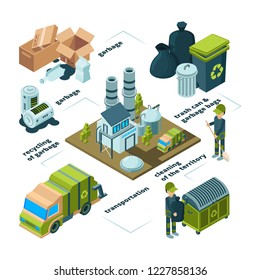Quick Tips For Handling Waste Throughout A Home Remodelling
Quick Tips For Handling Waste Throughout A Home Remodelling
Blog Article
Material By-Reece Dueholm
When embarking on a home renovation, waste monitoring may not be the first thing on your mind, however it's an essential facet of the procedure. By applying a couple of easy approaches, you can dramatically reduce the environmental influence of your task. From smart decluttering strategies to creative recycling options, these quick tips will not only improve the performance of your restoration however also contribute to an extra lasting result.
Pre-Renovation Decluttering
Prior to diving into your home renovation task, decluttering your space is an essential action to make certain a smoother and much more orderly process. Beginning by assessing each room and identifying what items are necessary and what can be disposed of or donated. Be ruthless in your decluttering initiatives; if you haven't made use of an item in over a year, it might be time to let it go.
Kind items into categories such as maintain, donate, reuse, or dispose of. see this like bins or shelves to assist organize the products you select to maintain. This will not just declutter your area but likewise make it less complicated to find points throughout and after the remodelling.
Decluttering before the restoration won't just simplify the procedure yet additionally save you money and time. You'll have a clearer vision of what needs to be done and will not be overwhelmed by unnecessary products.
When you have actually decluttered, you can move forward with your improvement project with a fresh and well organized area.
Efficient Waste Sorting
To make certain a smooth and ecologically mindful home improvement process, efficient waste sorting is essential. As you start your renovation task, set up designated sorting areas for different sorts of waste.
Putting different containers or containers for recyclables, harmful products, and general waste will streamline the disposal process and make it less complicated to divert recyclable products from ending up in landfills.
read full article sorting area clearly to stay clear of complication and make certain that every person involved in the restoration recognizes where each type of waste ought to go. This easy step can help protect against mixing of materials that can contaminate recyclables or create safety hazards throughout disposal.
Recycling and Upcycling Techniques
Efficient waste arranging sets the structure for an effective home restoration project. When it concerns handling waste throughout your remodelling, reusing and upcycling methods play an essential function in minimizing land fill waste and taking full advantage of the potential of your materials.
Begin by marking separate containers for various kinds of recyclables like glass, plastic, and paper. Consult your neighborhood recycling centers to guarantee you're complying with the appropriate guidelines for disposal.
Consider upcycling things like old furnishings, doors, or closets as opposed to tossing them away. With a fresh layer of paint or some imaginative changes, you can provide these things a new life in your refurbished space. Upcycling not only lowers waste yet additionally adds an unique touch to your home design.
Look for donation centers or companies that approve multiple-use structure materials. By giving away products like light fixtures, cupboards, or floor tiles, you can aid others while decluttering your room. Bear in mind, a little initiative in recycling and upcycling can go a long way in making your home restoration job more sustainable and environmentally friendly.
Verdict
To conclude, by adhering to the quick tips for managing waste throughout a home improvement, you can make the process much more efficient and environmentally friendly. Decluttering prior to starting the renovation, arranging waste into marked containers, and thinking about recycling or upcycling choices can aid reduce the amount of waste mosting likely to land fills. With a little added effort, you can make a big effect on the sustainability of your task.
